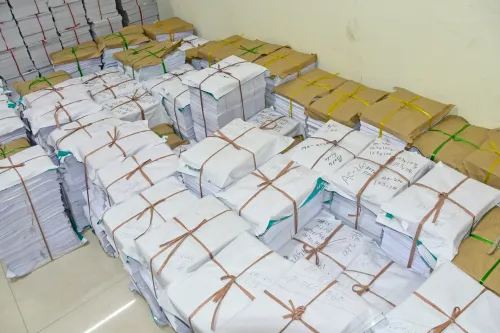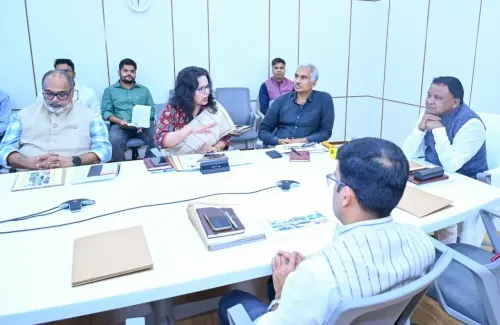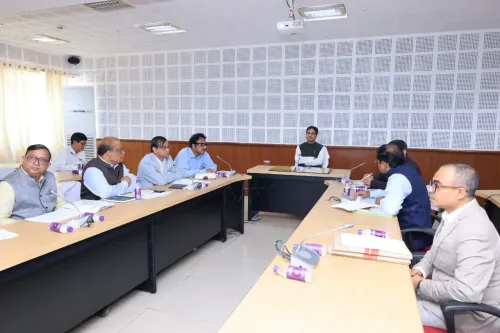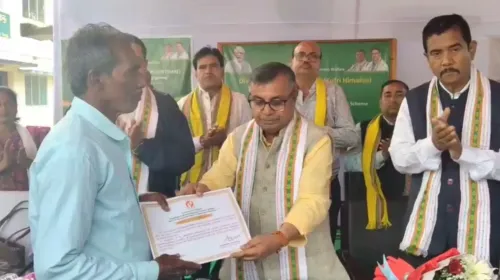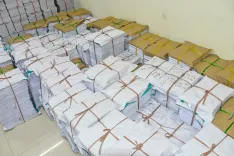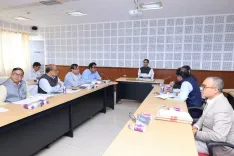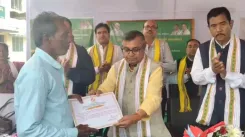Are Relations with Afghanistan on the Right Path?
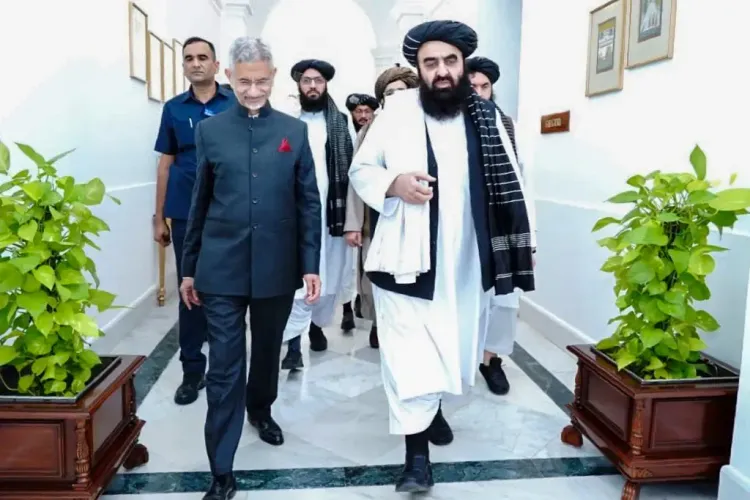
Synopsis
Key Takeaways
- Muttaqi's visit highlights strong historical ties.
- India's humanitarian aid continues amidst political challenges.
- Ongoing development projects strengthen bilateral relations.
- People-to-people connections endure across regimes.
- Diplomacy requires engagement with current powers.
New Delhi, Oct 10 (NationPress) Former Indian diplomats expressed their support for the visit of Afghanistan's Foreign Minister Mawlawi Amir Khan Muttaqi to India, underlining the deep-rooted connections between the two nations.
Veena Sikri, former Indian Ambassador to Bangladesh, described Muttaqi's trip as significant and applauded New Delhi for upgrading its Technical Mission in Kabul to an Embassy.
During an interview with IANS, Sikri emphasized India's unique bond with the Afghan populace, who frequently come to India for education, social interaction, and business opportunities. She noted that India has provided assistance to Afghanistan following recent natural disasters.
“The visit of Foreign Minister Mawlawi Amir Khan Muttaqi is crucial. Afghanistan shares a border with us and is a SAARC member. Our historical ties span centuries, with the Afghan people maintaining a special connection to India. They come here to study, engage with people, and conduct business. Our friendship is longstanding, and even though the Taliban government has returned, our relationship with the Afghan populace continues to thrive, marked by ongoing development and humanitarian efforts,” commented Sikri.
Sikri added, “In response to a recent earthquake in Afghanistan, we were among the first to provide aid, including tents, medicines, and food supplies. Our technical mission has played a significant role in facilitating talks with the Taliban and maintaining relations.”
Earlier, External Affairs Minister S. Jaishankar met with Muttaqi in New Delhi, during which they discussed India's commitment to Afghanistan's development, trade relations, territorial integrity, and other pressing issues.
Reflecting on previous interactions with the Taliban, Sikri noted, “Muttaqi's recent participation in a Moscow format meeting and conversations with Minister Jaishankar indicate a positive trajectory for our bilateral relations.”
Former diplomat Anil Trigunayat also endorsed Muttaqi's visit, highlighting the enduring people-to-people ties between Kabul and New Delhi irrespective of the current regime. He remarked on India's substantial contributions to Afghanistan's reconstruction, including building vital infrastructure.
“It is essential to refer to him as Afghanistan’s Foreign Minister, not just the Taliban’s. Our historic and civilizational ties with Afghanistan remain strong. India has been pivotal in Afghanistan's development, contributing nearly USD 3 billion during its period of U.S. control.”
“The Afghan people recognize and appreciate this support. Even amidst regime changes, they have conveyed to us the importance of our presence,” he added.
Former Indian diplomat K. P. Fabian remarked that engaging with the Taliban is necessary for effective diplomacy. He acknowledged that while the Taliban's actions regarding women's rights are unacceptable, it is vital to communicate our concerns while offering humanitarian assistance.
“We could initiate a public offer to refurbish the Indira Gandhi Hospital in Afghanistan, ensuring no restrictions on women working there. This approach reflects our commitment to humanitarian aid amidst complex political realities,” Fabian concluded.


